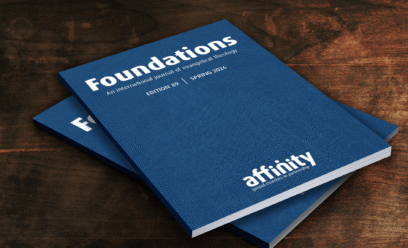The normalisation of underage sex is leaving children unprotected, says National Family Charity
The normalisation of underage sex is exposing children and young people to
the risk of sexual exploitation, according to a new report from the
national charity, Family Education Trust. Based on an analysis of high
profile cases of child sexual exploitation, the study highlights an aspect
of the debate which has so far been neglected.
The 152-page report examines the findings of serious case reviews of child
sexual exploitation in several parts of England, including Rochdale and
Oxfordshire, alongside Professor Alexis Jay’s Independent Inquiry into
Child Sexual Exploitation in Rotherham.
It finds that the failure of professionals to detect the abuse of so many
young people in different parts of the country cannot be accounted for by
the incompetence of individual officers or inadequate systems at the local
level. Rather, it has to do with a culture in which underage sexual activity
has come to be viewed as a normal part of growing up and seen as relatively
harmless as long as it is consensual.
The report’s author, Family Education Trust director Norman Wells,
commented:
“The evidence from recent serious case reviews clearly demonstrates that
fundamental flaws in professional attitudes towards underage sexual activity
have directly contributed to exploitation and abuse.”
COMMON THEMES
The study finds common themes emerging from the serious case reviews -
themes which have been largely overlooked by agencies and governmental
bodies charged with protecting young people from sexual exploitation and
abuse:
– A presumption that sexual activity involving children of a similar age (or
with an age gap of just a few years) is consensual and will not normally
involve child sexual exploitation.
– A failure to recognise that sexual activity between young people of
similar ages may still involve abuse or exploitation.
– A culture in which underage sexual activity is not challenged and hence
becomes normalised.
– A failure on the part of professionals to raise questions about underage
sex or even about the identity of the father when presented with a pregnant
teenager under the age of 16.
– A culture in which the response of professionals to underage sex is
frequently limited to the confidential provision of contraception in order
to reduce the risk of pregnancy or sexually transmitted infection.
– A disparity between the age at which children may access contraception and
the age at which they are legally able to give consent to sexual activity.
– Confusion over the interpretation and implementation of guidelines in
relation to the routine provision of contraception to under-16s,
contributing to child sexual exploitation.
– An expectation that under-16s will be sexually active meaning that access
to sexual health services under the age of consent is regarded as normal and
positive, and therefore fails to trigger any consideration of the
possibility that the girls might be suffering abuse.
– Young people feeling let down by professionals prioritising patient
confidentiality over safeguarding.
– A tendency to dismiss parental concerns and to regard parents as part of
the problem.
– Children being treated as adults, with the competence and autonomy to make
their own choices in relation to sexual activity.
Norman Wells remarked:
“Relaxed attitudes towards underage sex has led to what can only be
described as a paralysis in child protection agencies as far apart as
Rochdale in the north, Torbay in the south, Thurrock in the east and
Liverpool in the west.
“Even though the normalisation of underage sex has been identified
repeatedly in the serious case reviews as a reason for the complacency of
child protection agencies, there is no indication of a willingness to
address these underlying issues either at the local or the national level.”
SERIOUS QUESTIONS
The Family Education Trust study raises serious questions about the
government’s plans to combat child sexual exploitation by making
relationships education a compulsory part of the primary school curriculum
and by making relationships and sex education a statutory subject in all
secondary schools.
The report argues that the approach to relationships and sex education
favoured by the leading campaigners will prove counter-productive and do
more harm than good. It comments that:
“The message that children and young people must be left free to decide for
themselves when they are ready to embark on a sexual relationship is
failing them and exposing them to the risk of sexual exploitation.”
The report further observes that the Oxfordshire serious case review noted
that the reluctance in many places, both political and professional, to
have any firm statements about something being wrong had contributed to
an environment where it is easier for vulnerable young people/children to
be exploited. It also makes it harder for professionals to have the
confidence and bravery to be more proactive on prevention and intervention.
Norman Wells commented:
“The evidence from the serious case reviews suggests that the relativistic
approach advocated by the leading campaigners for statutory sex education is
not the solution, but is rather part of the problem.
“We should be wary of any approach to sex and relationships education that
is reluctant to declare anything wrong. Children, young people and
professionals alike all need a clear moral compass in order to safely
negotiate the confused and confusing landscape that lies before them.”
Bearing the title ‘Unprotected’, the report argues that high levels of child
sexual exploitation cannot be addressed by improved communications or the
restructuring of local authority and police departments, nor by statutory
relationships and sex education. It demonstrates that the root causes that
need to be addressed are social, cultural and moral. Unless the government,
together with professional bodies and child protection agencies, is willing
to grasp the nettle and reverse the normalisation of underage sex, children
and young people will remain exposed to the risk of child sexual
exploitation.
Professor David Paton of Nottingham University Business School described the
report’s findings as utterly damning. Writing in the Foreword, he
insists:
“With the publication of this report, policymakers and professionals working
in sexual health no longer have any excuse to ignore the evidence… It is
of the utmost importance that the government takes the findings of this
report seriously and undertakes an urgent review of its approach to
confidential sexual health services.”
PUBLICATION DETAILS
‘Unprotected: How the normalisation of underage sex is exposing children
and young people to the risk of sexual exploitation’, by Norman Wells is
published by Family Education Trust, The Atrium, 31 Church Road, Ashford,
Middlesex TW15 2UD www.familyeducationtrust.org.uk
Paperback, 152pp, ISBN: 978-0-906229-24-8 Price: £7.50
Family Education Trust is an educational charity committed to promoting
stable family life and the welfare of children and young people.
Stay connected with our monthly update
Sign up to receive the latest news from Affinity and our members, delivered straight to your inbox once a month.



